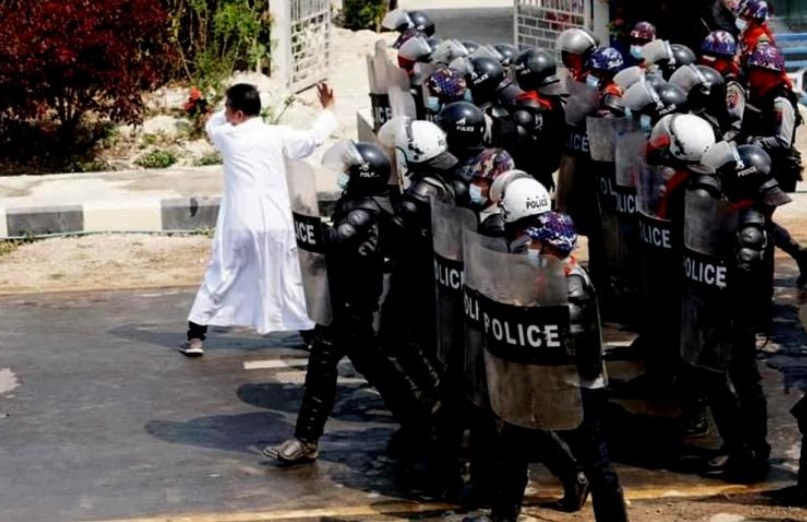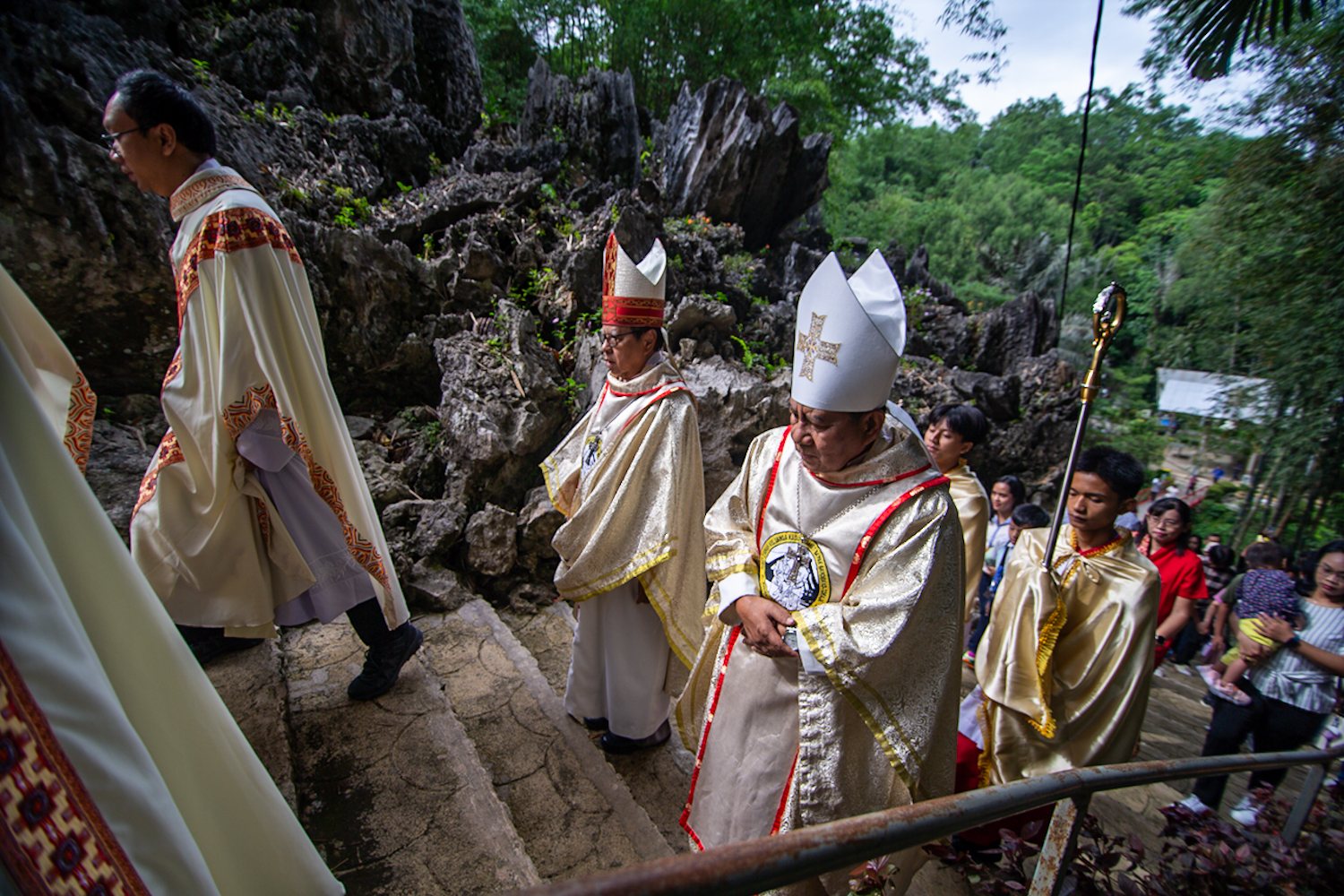Celso Ba Shwe, the courageous bishop
Joaquim Magalhães de Castro
The civil war in Myanmar appears to have reached a turning point. With the so-called “Operation 1027”, a military initiative by ethnic militia rebels allied with the Popular Defense Forces that emerged among the Burmese population after the February 2021 coup d’état, they attacked the regime’s army in several parts of the country, especially in Chin, Shan, Kayah and Rakhine states. They have been inflicting heavy defeats on the military loyal to Yangon, forcing them to retreat, and now control – according to independent observers – more than 50% of the country’s territory. The situation is such that General Min Aung Hlaing, head of the Military Junta, fears the risk of the nation’s disintegration.
The city of Loikaw, capital of Kayah state, in central-eastern Myanmar, has been particularly subject, at least since last November, to constant airstrikes and bombings. And for a long time now, not even sacred places – especially churches – have been spared. On the contrary, they even constitute privileged targets for military operations. Loikow Cathedral was no exception.
For having denounced the attack and occupation by the Burmese army on the Catholic pastoral center attached to this cathedral, where internally displaced people sought refuge for months on end as part of the ongoing civil war, the bishop of that city, Celso Ba Shwe, now found himself in a refugee situation.
“On three occasions, the Burmese army attempted to occupy the complex of the Cathedral of Christ the King,” he reports to Vatican News. “As the local bishop, I, together with the priests, tried to convince the military leaders of the importance of the religious sites and asked them to leave the site.” Instead, on 26th November, soldiers deliberately fired several artillery shells at the community center, destroying the chapel’s roof. For security reasons, the religious abandoned the facilities, which were occupied by the army, which now uses them as a base and shelter.
About 300,000 people live in Kayah, Myanmar’s smallest, predominantly Christian state. Of the 41 parishes in the diocese of Loikow (with 93,000 faithful), 21 were seriously affected. Priests and other religious took refuge in the countryside or in the mountains in the company of the faithful. In the last month alone, humanitarian organizations estimate that more than 200,000 individuals have become refugees. Around 2.5 million people have already fled since the start of the civil war.
Bishop Celso Ba Shwe describes the situation in the region as dramatic: “The Burmese army used heavy weapons, combat aircraft, armored vehicles and mobile defense systems. As a result, people, both in cities and in the countryside, are fleeing in all directions.”
Due to the intensification of the armed conflict in November, more than 80 percent of the urban and rural population in Kayah State is displaced. Among the refugees are the elderly and sick, people with disabilities, women and some young people. The number is constantly increasing. Everyone will look for new Catholic parishes, or other facilities, further away from the fighting.
The Christ the King Cathedral complex and the adjacent Diocesan Pastoral Center in Loikaw remain occupied by the Burmese army, which uses it as a military base. The Bishop, the priests and their associates, expelled from their usual residences, now live as displaced people. Some, in parishes spared by the conflict; others, in health centers or religious houses, still others, in tents or improvised shelters among the faithful spread throughout the forest. And that’s how they spent Christmas, plagued by uncertainty and difficulties.
The occupation of the cathedral, the heart and symbol of the diocesan community, could in fact cause discouragement and despair in the community, but it was precisely in a situation like this that Bishop Celso Ba Shwe wanted to encourage “the people of God” with a message to the faithful in the pastoral letter that he wrote on the occasion of Christmas, reaffirming the hope that rests in the providence of God the Father: “I would like to remind you that a diocese is part of the People of God, entrusted to a bishop in collaboration with the presbytery. It is not just a geographical space, but a community that gathers around the bishop in unity with the presbytery. The main dynamic of the community is the proclamation of the Gospel and the celebration of the Eucharist. In our case, the Church founded by Christ is alive and present even in suffering. It is important that we all remain united and build a community that crosses this desert, united around the Gospel and the Eucharist. We know that Christ, the Good Shepherd, cares for the flock for which he gave his life.”
Quoting John Chrysostom, patriarch of Constantinople, Dom Celso Ba Shwe states: “As long as we are sheep we will be victorious, and even if we are surrounded by many wolves, we will overcome them. But if we become wolves, we will be defeated because we will be deprived of the pastor’s help. The shepherd does not feed wolves, but sheep.”


 Follow
Follow


